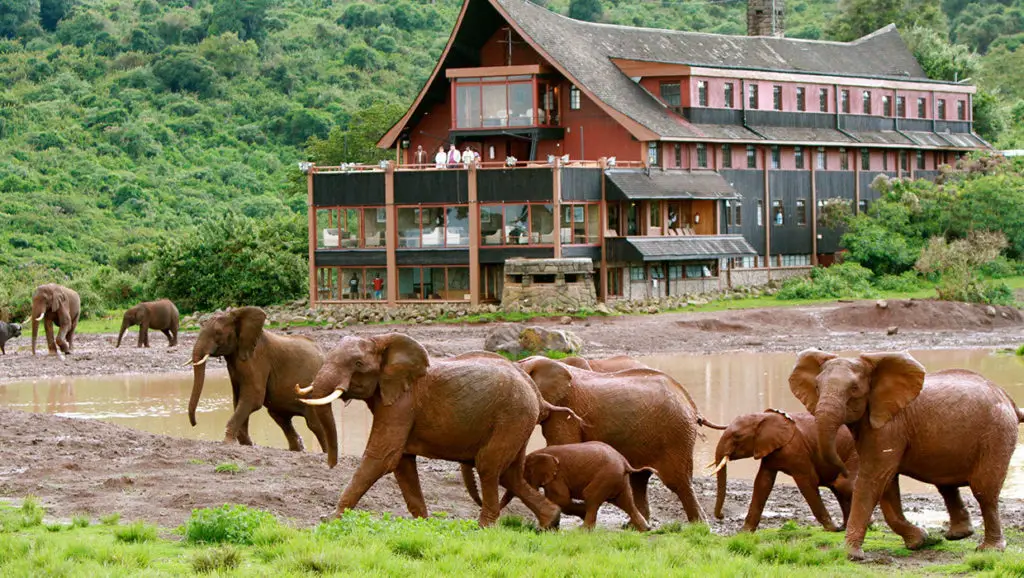Kapenguria Town, the capital of West Pokot County in Kenya, hosts a diverse range of economic activities primarily centered around agriculture, livestock farming, small-scale trading, and emerging sectors such as tourism and services.
As the administrative center of the county, Kapenguria also benefits from government services and related employment opportunities. The town’s economy is characterized by a blend of traditional practices and modern developments, reflecting its role as a hub for the surrounding rural areas and its growing urban population.
What are the main economic sectors in Kapenguria?
The primary economic sectors in Kapenguria include:
- Agriculture
- Livestock farming
- Small-scale trading and commerce
- Government and administrative services
- Tourism
- Education and health services
- Transport and logistics
- Construction and real estate
These sectors form the backbone of Kapenguria’s economy, providing employment and driving local development.
How significant is agriculture in Kapenguria’s economy?
Agriculture plays a crucial role in Kapenguria’s economy:
- Major source of employment for local residents
- Primary income generator for many households
- Key contributor to food security in the region
- Supports related industries (e.g., agro-processing, transportation)
- Main crops: maize, beans, potatoes, and fruits
The agricultural sector is the foundation of Kapenguria’s economic activities, reflecting the town’s rural surroundings and traditional practices.
What is the role of livestock farming in Kapenguria?
Livestock farming is a significant economic activity in Kapenguria:
- Traditional practice of the Pokot community
- Major source of income and wealth
- Supports meat and dairy industries
- Contributes to cultural practices and social status
- Main livestock: cattle, goats, sheep, and camels
The livestock sector is deeply ingrained in the local culture and economy, providing both sustenance and economic opportunities.
How does small-scale trading contribute to Kapenguria’s economy?
Small-scale trading is a vital component of Kapenguria’s economic landscape:
- Provides employment for many urban residents
- Facilitates the distribution of goods and services
- Supports local entrepreneurship
- Enhances urban-rural economic linkages
- Common businesses: retail shops, market stalls, and mobile vendors
This sector plays a crucial role in the daily economic life of Kapenguria, serving both local needs and visitors to the town.
What government and administrative services impact the local economy?
As the county capital, Kapenguria benefits from various government and administrative services:
- Employment opportunities in public sector
- Increased business activity due to administrative functions
- Infrastructure development driven by government projects
- Educational institutions and health facilities
- Security services and law enforcement
These services contribute to the town’s economy by providing stable employment and attracting people from surrounding areas.
How is tourism developing as an economic sector in Kapenguria?
Tourism is an emerging sector in Kapenguria’s economy:
- Centered around historical sites (e.g., Kapenguria Museum)
- Cultural tourism showcasing Pokot traditions
- Ecotourism in nearby natural attractions
- Supports hospitality and service industries
- Potential for growth and diversification
While not yet a major economic driver, tourism is seen as a promising sector for future development and job creation.
What role do education and health services play in the local economy?
Education and health services contribute significantly to Kapenguria’s economy:
- Employment for teachers, healthcare workers, and support staff
- Attraction of students and patients from surrounding areas
- Stimulation of related businesses (e.g., bookshops, pharmacies)
- Skills development for the local workforce
- Improved human capital contributing to overall economic growth
These sectors not only provide essential services but also create economic opportunities and enhance the town’s regional importance.
How does the transport and logistics sector support Kapenguria’s economy?
The transport and logistics sector is crucial for Kapenguria’s economic activities:
- Facilitates movement of goods and people
- Supports agricultural and livestock trade
- Provides employment (e.g., drivers, mechanics)
- Enhances connectivity with other regions
- Stimulates related businesses (e.g., fuel stations, repair shops)
This sector plays a vital role in connecting Kapenguria to broader markets and supporting other economic activities.
What is the state of the construction and real estate sector in Kapenguria?
The construction and real estate sector in Kapenguria is showing signs of growth:
- Increasing demand for housing due to urban migration
- Development of commercial properties
- Infrastructure projects driving construction activities
- Employment opportunities in construction and related trades
- Emerging real estate market for both residential and commercial properties
While not as developed as in larger urban centers, this sector is responding to Kapenguria’s growth and urbanization.
How do informal economic activities contribute to Kapenguria’s economy?
Informal economic activities play a significant role in Kapenguria:
- Provide employment for many residents
- Offer flexible income opportunities
- Fill gaps in formal sector services
- Contribute to local economic circulation
- Common activities: street vending, casual labor, home-based businesses
The informal sector is an important part of Kapenguria’s economic landscape, particularly for those unable to access formal employment.
What challenges does Kapenguria’s economy face?
Kapenguria’s economy faces several challenges:
- Limited industrialization and value addition
- Dependency on rain-fed agriculture
- Inadequate infrastructure in some areas
- Limited access to credit for small businesses
- Skills gap in emerging sectors
- Climate change impacts on traditional livelihoods
- Market access limitations for local products
Addressing these challenges is crucial for sustaining and diversifying Kapenguria’s economic growth.
How is technology impacting economic activities in Kapenguria?
Technology is increasingly influencing Kapenguria’s economic landscape:
- Mobile money services facilitating transactions
- Digital platforms connecting local businesses to broader markets
- Improved communication enhancing business operations
- E-government services streamlining administrative processes
- Agricultural technology improving farming practices
While adoption is still ongoing, technology is gradually transforming various sectors of Kapenguria’s economy.
What economic development initiatives are underway in Kapenguria?
Several initiatives are aimed at boosting Kapenguria’s economic development:
- County government investment in infrastructure
- Promotion of agribusiness and value addition
- Support for small and medium enterprises (SMEs)
- Tourism development and marketing
- Skills training and capacity building programs
- Encouragement of cooperative societies
- Efforts to attract external investment
These initiatives seek to diversify the economy and create more opportunities for local residents.
Economic Indicators for Kapenguria (Estimated)
| Indicator | Value |
|---|---|
| Population (2019) | 40,751 |
| Main Employment Sector | Agriculture and Livestock |
| Unemployment Rate | 25-30% |
| Average Household Income | KES 15,000-20,000/month |
| Major Industries | Agribusiness, Retail, Services |
| GDP Contribution to County | 30-35% |
Note: These figures are estimates based on available data and may not reflect exact current values.
How does Kapenguria’s economy compare to other county capitals in Kenya?
Comparison of Kapenguria to other county capitals:
| Aspect | Kapenguria | Kitale (Trans Nzoia) | Lodwar (Turkana) |
|---|---|---|---|
| Main Economic Activity | Agriculture/Livestock | Agriculture/Commerce | Pastoralism/Oil |
| Level of Industrialization | Low | Moderate | Low |
| Tourism Development | Emerging | Moderate | Developing |
| Infrastructure | Developing | More Developed | Developing |
| Population Size | Smaller | Larger | Similar |
| Economic Diversification | Limited | Moderate | Limited |
This comparison highlights Kapenguria’s unique economic position and development stage relative to nearby county capitals.
Conclusion
The economic activities in Kapenguria Town, Kenya, reflect its role as a regional center in a predominantly rural area, with a growing urban influence. Agriculture and livestock farming remain the backbone of the local economy, deeply rooted in the traditions of the Pokot people.
However, the town is gradually diversifying its economic base, with emerging sectors such as tourism, small-scale trading, and services gaining prominence.
As the administrative capital of West Pokot County, Kapenguria benefits from government services and related employment opportunities, which contribute significantly to its economic landscape. The town’s strategic location also makes it an important transport and logistics hub, facilitating trade and connecting the region to broader markets.
Despite these strengths, Kapenguria faces challenges typical of many developing urban centers in Kenya. Limited industrialization, dependence on rain-fed agriculture, and inadequate infrastructure in some areas constrain economic growth.
Additionally, the impacts of climate change on traditional livelihoods and the need for skills development in emerging sectors present ongoing challenges.
Looking forward, Kapenguria’s economic future appears promising, with various development initiatives underway. Efforts to promote agribusiness, support SMEs, develop tourism, and attract investment are aimed at diversifying the economy and creating more opportunities for local residents.
The gradual adoption of technology across various sectors is also expected to drive innovation and efficiency.As Kapenguria continues to grow and evolve, balancing traditional economic activities with modern development will be crucial.
Sustainable practices in agriculture and livestock farming, coupled with the growth of service-oriented and knowledge-based sectors, could pave the way for a more resilient and diverse economy.
The town’s success in navigating these changes will be vital not only for its own development but also for its role as an economic engine for West Pokot County and the broader region.



